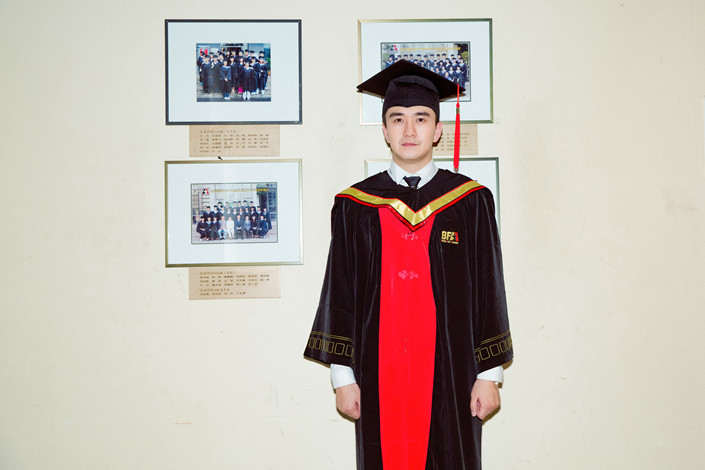Spring Festival Gala Actor Accused of Plagiarism

An actor who performed on China’s most-watched annual TV show this year has been accused of academic plagiarism, sparking a national debate on whether China’s education system gives celebrities special treatment.
Zhai Tianlin, the star of TV shows including 2017’s “White Deer Plain,” appeared in the 2019 Spring Festival Gala on Feb. 4. The annual production, broadcast by CCTV to celebrate the Lunar New Year, attracted 1.2 billion viewers this year.
A day later, doubts about Zhai’s academic qualifications — which include an impressive-sounding Ph.D. from the prestigious Beijing Film Academy — began circulating on the Chinese internet.
Social media users dug up a clip from a livestreamed Q&A with Zhai last year that appeared to show the actor’s ignorance of a major academic database. When asked if his thesis was available on Zhiwang, or China’s National Knowledge Infrastructure (CNKI) platform — a state-backed digital library that functions like JSTOR — Zhai looked confused and asked, “What’s Zhiwang?”
Commenters questioned how Zhai could have earned his Ph.D. if he knew nothing about a basic research tool like CNKI. Zhai also appears to have published no papers in any reputable academic journals, despite BFA’s rule that Ph.D. candidates must publish at least two articles, including one in a “key domestic journal.”
Additionally, an article Zhai published in May 2018 in an entertainment industry magazine was allegedly found by a Weibo user to be suspiciously similar to content written by Huangshan University academic Huang Lihua around a decade ago.
Zhai’s representatives denied that the actor didn’t know what CNKI was, claiming his apparent ignorance was intended to be a joke about the “tough endeavor” of thesis-writing. They added that Zhai had fulfilled BFA’s Ph.D. requirements, but did not provide details on the relevant papers published by Zhai, who is also a post-doctoral research fellow at Peking University’s Guanghua School of Management.
Zhai’s case has prompted Chinese social media users to question if the country’s top schools unfairly apply lower standards when considering celebrity candidates for research positions.
The state-run publication People’s Daily joined the debate Monday, calling on BFA and Peking University to respond to doubts about Zhai.
BFA said later that day that it had set up an investigation team to look into Zhai’s case, and that Peking University would take action based on the results of BFA’s investigation.
Chinese academia has long struggled with allegations of dishonesty and misconduct. In April 2017, academic publisher Springer Nature took down more than 100 research papers by Chinese academics suspected of faking peer reviews and of plagiarism.
Contact reporter Zhao Runhua (runhuazhao@caixin.com)

- 1Cover Story: China Carves Out a Narrow Path for Offshore Asset Tokenization
- 2Drownings Shake Chinese Enthusiasm for Travel to Russia
- 3Over Half of China’s Provinces Cut Revenue Targets
- 4Li Ka-Shing’s Port Empire Hit by Forced Takeover Amid Panama Legal Dispute
- 5In Depth: China’s Mutual Fund Industry Faces Overhaul After a Banner 2025
- 1Power To The People: Pintec Serves A Booming Consumer Class
- 2Largest hotel group in Europe accepts UnionPay
- 3UnionPay mobile QuickPass debuts in Hong Kong
- 4UnionPay International launches premium catering privilege U Dining Collection
- 5UnionPay International’s U Plan has covered over 1600 stores overseas




